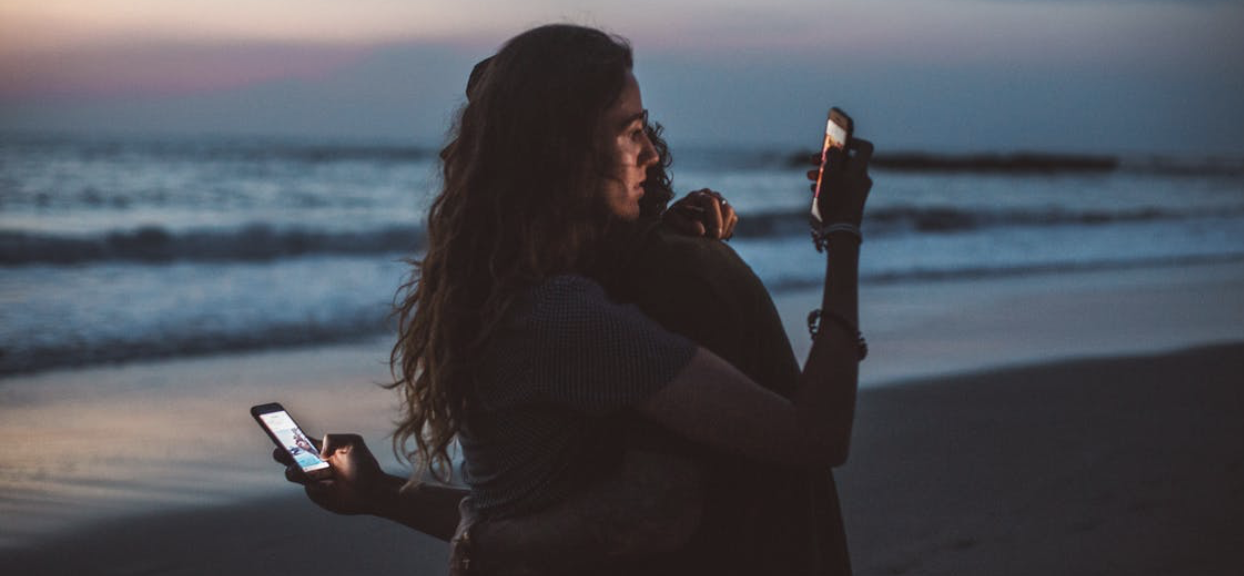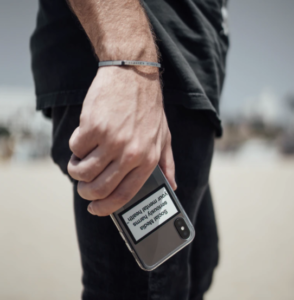
Screen addiction and substance abuse are two things that are growing increasingly prevalent independently of one another. Sometimes, they also develop together, or one might come before the other. Many of the underlying factors that contribute to screen addiction also play a role in substance abuse.
The COVID-19 pandemic has led to a rise in both screen addiction cases and substance abuse as well, highlighting the importance of discussing both right now.
What is Screen Addiction?
Screen addiction isn’t an addiction to the screen itself. Instead, it’s usually an addiction to social media, certain apps, video games, or mobile device dependence. Younger people, including children, are especially susceptible to screen addiction, which research shows can lead to changes in the structure of their brains. Screen addiction can impact long term neural development, which is one risk factor for a screen dependency disorder.
Some of the signs of screen addiction, especially in kids and teens, can include:
- There’s no control over screen use. You may notice this in your child, your partner, or even yourself. You or your child or loved one might try to stop using a device and find that they’re not able to stop for an extended period.
- With a screen addiction, there may be a loss of interest in other activities. For example, someone could stop spending time with friends to use their device instead or play a game.
- Thoughts are preoccupied with a game, social media, or a smartphone, even when it’s not being used.
- Screen use contributes to problems in relationships and conflict.
How Does Screen Time Change the Brain?
There was a study done by the National Institutes of Health in 2018 that found that children younger than 11 who spent more than two hours a day on screen activities scored lower on thinking and language tests. Children who had more than seven hours of time in front of a screen day had thinning in the frontal cortex of their brain. This is the part of the brain related to reasoning and critical thinking.
While more research needs to be done, this could show that the effects of screen time can change the brain in pretty profound ways by narrowing the focus.
Children can develop tunnel vision rather than experiencing a varied environment and different experiences, which impedes their development. Children who spend a lot of time on screens may have slow social and language development, and they may develop problems with attention and focus.
Understanding Behavioral Addictions
Screen addiction can fall into the larger category of behavioral addictions. Behavioral addiction is also called process addiction.
- A process addiction can include video games and screen time, sex, exercise, eating, gambling or shopping.

- There is debate as to whether or not “process addiction” should be classified in the same way as substance addiction, although we are increasingly finding similarities.
- With both process and substance addictions, a person continues to engage in harmful or damaging activities, even with the negative consequences they create.
- Studies have shown changes in the neural pathway of the reward system in the brain that are similar to behavioral and substance addictions. For example, if someone is addicted to social media and gets likes or comments, they might have a rush of dopamine that is the same as what someone addicted to drugs gets.
- When the behavior becomes an addiction, the person is entirely focused on getting that dopamine rush again and again by doing the same activities. Once something reaches this point, it’s often destructive to relationships and every area of the person’s life.
Researchers have looked specifically at social media. For example, a study by Harvard University found that self-disclosure on social media platforms can light up the same parts of the brain that are affected by taking an addictive substance.
When you get a dopamine rush because of social media, your brain starts to be rewired due to positive reinforcement. You’re getting attention for very minimal work on your part.
Researchers have also found that our brain reward centers are most active when we talk about ourselves. When you’re on social media, and you’re sharing something about yourself or posting a picture of yourself, then your brain is again stimulated to release dopamine.
Does Screen Addiction Affect Substance Abuse?
There can be direct and indirect relationships between screen addiction and substance abuse.
For example, if the brain is wired to want easy dopamine spikes from screens, then that could make you more susceptible to chase the same high from substances. It could also be that the changes in your brain that occur because of screens make you more likely to develop an addiction to drugs or alcohol. Someone who’s absorbed with screens may have impaired relationships with other people, leading them to rely on substances because of loneliness.
Another possible link between screen addiction and substance abuse is that if someone is regularly overstimulated, they might want to keep up that high level  of stimulation throughout their life. That can then contribute to a substance use disorder. There are a lot of ways screen addiction and substance use can interact with one another.
of stimulation throughout their life. That can then contribute to a substance use disorder. There are a lot of ways screen addiction and substance use can interact with one another.
Getting Substance Abuse Treatment Without Screens
Interestingly, if someone is going for substance abuse treatment in an inpatient facility, they are often not allowed to use their phone and usually any other device. While all centers have their own rules, the idea is that cell phones and devices can distract people from their recovery during substance abuse treatment.
There’s also the fact that having screens and devices while you’re in substance abuse treatment can bring stress into your life so that you cannot fully put all of your attention into your recovery. Treatment centers for so long have been mainly against bringing devices to rehab. It may be that they were onto something, now that we see the negative ramifications of screen addiction. It’s also possible that some people dealing with their screen addiction could become part of their substance abuse treatment.



























